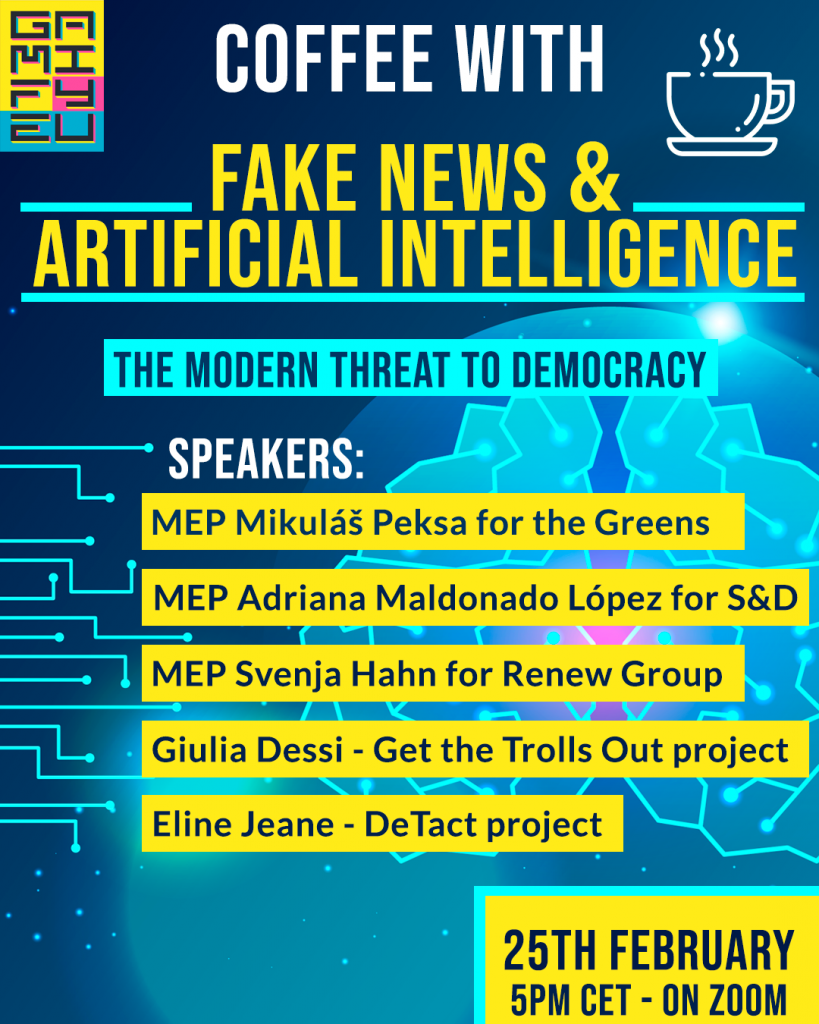In a time where the main source of information is the web, young people are extremely vulnerable to fake news and misinformation, which can be spread by individuals or Artificial Intelligence mechanisms (AI) (e.g.: deep fakes, meaning AI conceived to create content simultaneously throughout the user’s internet search). Therefore, it is imperative to hold conversations on how to tackle misinformation and fake news, and how young people can be truly informed, develop critical thinking and contribute to a truly democratic society. Certainly, this was one of the topics addressed during the Coffee With initiative. For this webinar, three prominent guests were invited to speak about the topic, how to deal with fake news and how artificial intelligence contributes to the problem.
The guests of this webinar were:
Mikulas Peksa, an MEP for the Greens from the European Parliament,
Giulia Dessi, the “Get the trolls out” ( https://getthetrollsout.org/) project manager and
Eline Jeane from the “Detact project” (https://dtct.eu/).
There were, in total, about 40 participants taking part in this webinar, who were also involved in the discussion.
The approach was twofold, on the legislative level the discussion was based on what could be done to stop the propagation of fake news on the internet, and on the civil and social levels the conversation addressed what young people can do to detect fake news, report them or call them out.
During the webinar, it was made clear that there is awareness on how misinformation and fake news can change the socio-political landscape, which can interfere with the creation of appropriate legislation that does not overlap with the freedom of press and expression. Thus, the European parliament is working on how to eliminate as many false narratives from the internet as possible. For that purpose, AI can be used to detect fake news and/or cross check information without having to use human resources. However, the risk of AI being used for nefarious purposes within the community remains.
The other two guests addressed young people’s role in being informed and aware of misinformation, and how they can detect hateful and fake narratives and how to call them out. Furthermore, the guest also explained how AI can be used for good to detect these narratives quicker and more efficiently than human resources.
The participants in the webinar were an active part of the discussion, having shared some of their worries regarding the subject. Further, the participants were taught how to cross-check information on the web. Critical thinking in the digital era is crucial and young people need to be aware of which tools they have in their possession to fight it and only process the truthful information that can be found.

